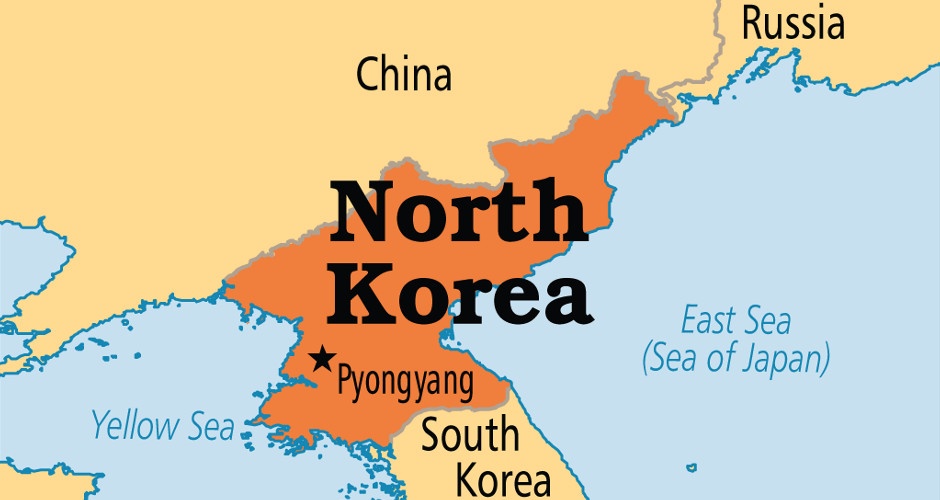— Published with Permission of ConservativeHQ.com —
North Korea’s latest nuclear test has pushed the Trump administration into a near frenzy, even though America has lived with the threat of annihilation for more than a half-century, starting when the Soviet Union built atomic weapons. President Donald Trump’s blustering and posturing have done more to unsettle America’s allies than frighten North Korea.
Hopefully, the president’s promises of “fire and fury” and threats of military strikes are more rhetorical than real, given the horrendous consequences of triggering the Second Korean War. An isolated, even paranoid Pyongyang is likely to view most any U.S. military action as the start of regime change and respond accordingly.
A better strategy would be to press for tougher sanctions while offering to negotiate, based on providing security guarantees, international recognition, development assistance, and more. So far, however, President Trump has talked of little other than more penalties, while applying special pressure on the People’s Republic of China, which has the greatest economic ties with the North.
The moment seems right to enlist the PRC in a campaign to halt and perhaps roll back Pyongyang’s nuclear and missile programs. China barely talks with the Democratic People’s Republic of Korea these days and has agreed to steadily tighter sanctions.
Yet the Trump administration has failed to recognize that it needs to negotiate with, not dictate to, the PRC. Washington’s latest gambit was to push for a ban on oil sales to the North.
An effective ban on oil imports, of which China provides 80 percent, could cripple the North Korean economy, though not necessarily the regime. Kim would protect his military programs and ideological elite while letting economic hardship fall heavily on everyone else.
So even a total oil embargo might not be enough to force Pyongyang to change course. Even Russia’s Vladimir Putin rejected an oil embargo: “They’ll eat grass, but they won’t abandon their program unless they feel secure.”
Moreover, the Chinese have important reasons for not wanting to make the North Koreans eat grass. Beijing doesn’t want a national implosion on its border. The result could be millions of refugees flooding across the Yalu River into China, a civil war and fighting that overflows the border, loose nuclear weapons, and other dangerous consequences.
If the South effectively swallowed the DPRK, China would face a much stronger Korea that, if still allied with America, would host U.S. troops. To prevent such a possibility in 1950 Beijing went to war.
The politics also might be dicey for President Xi. The DPRK long has been a special concern of the Chinese Communist party and People’s Liberation Army.
Instead of rushing ahead, as if Kim Jong-un had a mass of ICBMs ready to fire and was plotting a first strike on the American homeland—he does not and is not—the Trump administration should initiate serious discussions with China. The U.S. should start by acknowledging Beijing’s interests.
The PRC long has blamed the U.S. for threatening the North and encouraging Pyongyang’s development of nuclear weapons. The Trump administration should engage China in developing a peace package, which Beijing should support.
The Trump administration also should promise to assist in any messy North Korean implosion, accept Chinese military intervention in the event of a DPRK breakdown, and neutralize a reunited peninsula, as Seoul ended its alliance with America and the U.S. brought home its troops.
Unfortunately, so far the Trump administration simply demands action. In choosing penalties against rather than coordination with the PRC, Washington risks overplaying its hand.
For instance, targeting Chinese firms could stiffen Beijing’s resistance to imposing potentially regime-ending sanctions on the North. President Trump’s refusal to even acknowledge that the PRC has serious reasons for its current policy discourages China from acting.
Despite the Trump administration’s histrionic outbursts, deterrence almost certainly will work as well against Kim Jong-un, who like his father and grandfather favors virgins in this world rather than the next, as it did against Joseph Stalin and Mao Zedong. Which is good, since the chance of stopping the North from gaining a sizeable arsenal of deliverable nukes is slim and shrinking.
The administration’s best shot would be to mix diplomacy and sanctions in an initiative backed by Beijing. But winning that assistance requires persuasion rather than compulsion. The administration must convince Beijing that pressing the North further is in China’s interest as well as America’s interest.


